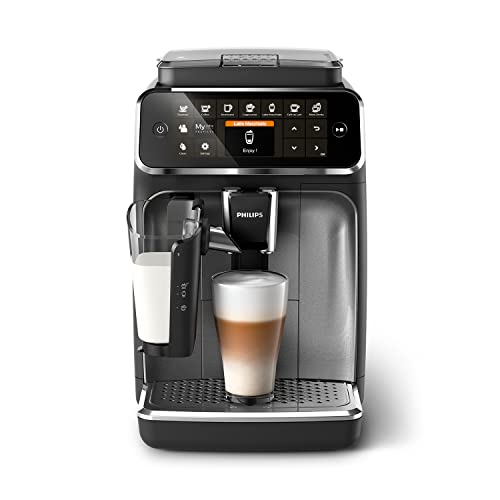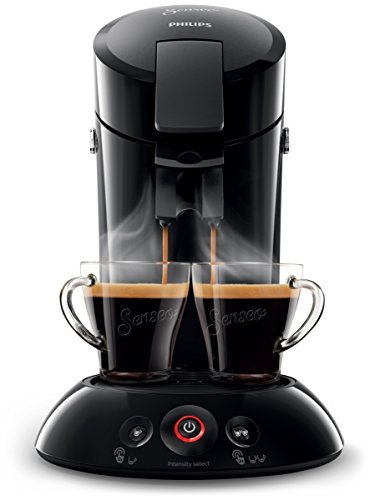Machine Coffee Tools To Make Your Daily Life Machine Coffee Trick That…
페이지 정보

본문
 What Goes On Inside a Machine Coffee Maker?
What Goes On Inside a Machine Coffee Maker?Coffee machines make it easy to take a hot cup of coffee at home. Some of the most sought-after models come with a programmed clock and even a built in grinder.
 When you switch on the power the sensors control the heating element which circles a warming plate. It also includes a water tube made of aluminum that runs through it.
When you switch on the power the sensors control the heating element which circles a warming plate. It also includes a water tube made of aluminum that runs through it.Cold-Water Tube
A machine coffeemaker takes the water you pour in and turns it into coffee. It does this by boiling the water, then passing it through a process that creates high pressure to push it through a capsule made of ground or soluble material. These machines utilize up to 15 bars of pressure, in contrast to coffee percolators which operate at just one bar.
The reservoir resembles a bucket at the bottom of the machine and is where the water is stored to make your drink. The reservoir has a hole at the bottom. It connects to the tube inside the heating element on one side, and to an insulated tube running from the bottom of the machine to the tap on the other.
When you turn on the machine the water from the reservoir is being pumped into the heating chamber. The thermostat then tells the machine to heat up. As the water heats, it expands. This pushes a filter under a portafilter that is filled with espresso and then tamped. This pressure causes the screen to cut through the filter and let the espresso into your cup.
The espresso brewed by your machine is a rich and flavorful coffee. It can come with varying levels prices of coffee machines acidity, based on the kind of coffee you select. If your brew is unpleasant Try using an alternative filter or coarsely ground beans. If the issue persists then you must schedule an authorized service technician to perform the de-liming procedure to clear out your machine. The most commonly cited cause for this problem is lime scale.
Hot-Water Tube
The white tube insulated in the base of your coffee maker is called the hot-water tube. It carries hot water from the heating chamber to the faucet on the top of your coffee maker. The water is infused into the coffee grounds, bringing the flavors down into the coffee maker's waiting pot.
Some coffee makers come with the ability to keep the water warm so that it's ready when you wake up. This is done by using a heater to generate some steam. The steam is directed into the spout to ensure that your coffee stays warm until you are ready to pour it.
While it may appear as though a coffee maker is complicated and expensive, most models are quite easy to operate and have few moving parts. Regular cleaning and maintenance will keep your machine in great condition for many years to come.
Many coffee machines with integrated grinders allow you to add ground coffee from a container, lock the portafilter to its place, then turn on the switch inside to start the small coffee machine brewing process. When the switch is turned on, the pump begins to pressurize the water in the heating chamber until it's at about 220 psi.
The need to constantly refill the reservoir is one of the most difficult aspects of making coffee. Certain manufacturers have developed coffee machines that connect directly to the water line. This lets you bypass your reservoir. If you're a DIYer there are kits available to convert any machine to an espresso maker that has water line connections. This procedure is more complicated and requires drilling holes into your machine to accommodate an adapter. This could weaken the structure of your coffee maker and cause cracking in the areas where holes were drilled. For best compact coffee machine, Http://47.104.6.70/Coffeee6302, results, you should purchase a coffee machine professional maker designed specifically to take an immediate line of water.
Resistive Heat Element
The heater is made of steel and has a special resistance to electricity. It resists the flow of electricity without stopping it completely. In addition, some energy is converted into heat. This is the way your coffee maker's boiler warms the water.
The heating element is situated on the left-hand side of the machine's base. It looks like the filament of a lightbulb or the element of an electric toaster. It is comprised of an aluminum extrusion with two sections, a tube that allows water to flow through and the heating element itself that is resistive (Check video here). The resistance in the coiled wire causes it to get hot when it is given electricity.
When you turn on your coffee maker the element begins heating the aluminum water tube until it starts to boil. Then, the bubbles rise through the white tube and are sprayed on your ground coffee by the shower head. The water that is sprayed picks up the essential oil essence of the ground coffee beans while it travels down, and also contains caffeine.
If your coffee maker isn't release hot water, it's likely because the pressure switch or heating element thermostat is not working properly. You can test both by using a multi-meter to perform the continuity check. You connect one of the poles to the electrical connection and the other to the flange body, and it should display a number below 1. If there isn't any reading then this indicates the switch or thermostat needs to be replaced.
The other main part of your coffee machine that could be the cause of issues is the water pump or reservoir. It is prone to getting blocked with lime, so you will need to run water and descaling agents through it.
Warming Plate
A warming plate is an heated metal surface that keeps the coffee warm after it has been brewed. This feature is very popular with diner coffee drinkers and can be a valuable feature to have in a kitchen at home. The warming plate is susceptible to get rusty and ruin the taste, so it is important to clean it regularly. Cleaning a coffee maker's heating surface is best done using the combination of oxalic and water.
Oxalic acid is an effective cleaning agent that can be used to remove corrosion from sinks, pipes, gas stove burners, and a variety of other household items. You can purchase this product at a variety of hardware stores. It is an effective way to clean the rusty warming plates that are in your coffee makers. This product could cause serious injuries and burns if it is not handled properly.
If you want to clean a coffee maker with rust heating plate, first ensure that the coffee maker has been disconnected. This will avoid any damage that could be caused by the heat generated by the cleaning products. Rubber gloves are also recommended as oxalic acids can be harsh on the skin.
Next then, pour some white vinegar on the rusty portion of the coffee maker's heating plate. The chemical reaction will dissolve the rust. Then you can use the rag or brush to scrub the area until it's clean. If your coffee maker is damaged, you may have to repeat the process a few times to make sure it is completely clean. Be sure to wait until the oxalic acid has completely evaporated before plugging the coffee maker in again.
Aluminum Water Tube
The machine will begin making coffee machine small the moment you start it up. It appears to be simple enough, but there's plenty going on the machine to transform just a few scoops of ground and some water into a steaming hot beverage.
The cold water is piped into the aluminum tube beneath the resistive heating element through an opening at the bottom of the reservoir. Then the aluminum water tube begins to heat up and when it is at its boiling point, bubbles start to form that push the water up the white tube that is located in the middle of your coffee making machine maker.
The hot water pours out from the top of this tube and into a perforated plastic disc, which is known as the shower head (or basket in some machines). Here, the hot water is sprayed on the coffee grounds, which absorbs its oil-based essence.
The water then flows over the coffee, then through the filter, it flows back into the pot. The pump's oscillating pressure is responsible for this. The shearing force induced by the expanding and contracting bubble boundaries removes the ground coffee particles from the water, leaving behind an espresso-like drink that is strong and smoky.
Be aware that your machine is dependent on many different components. They're all interconnected. If you experience strange noises or feel vibrations, it could be a loose component. Loose components can create noise and weaken connections. This could lead to further problems.
- 이전글A Glimpse Into The Secrets Of Coffee Machine Delonghi 24.11.23
- 다음글Coffee Machine Sage's History History Of Coffee Machine Sage 24.11.23
댓글목록
등록된 댓글이 없습니다.
